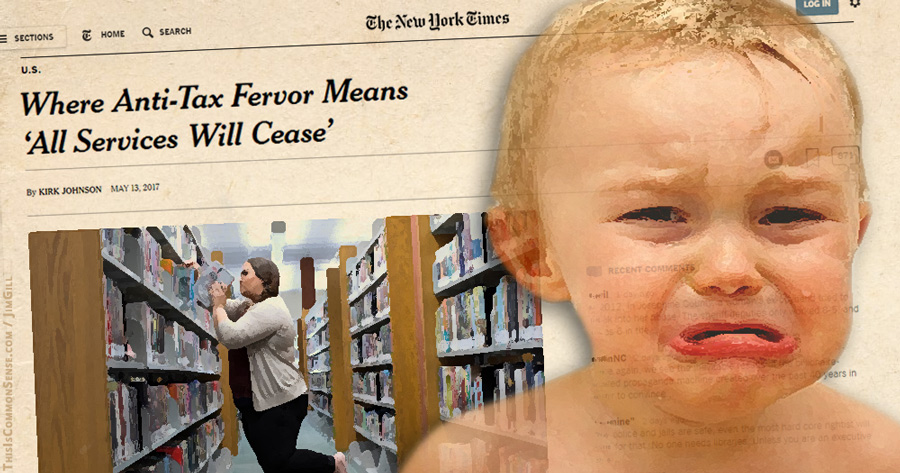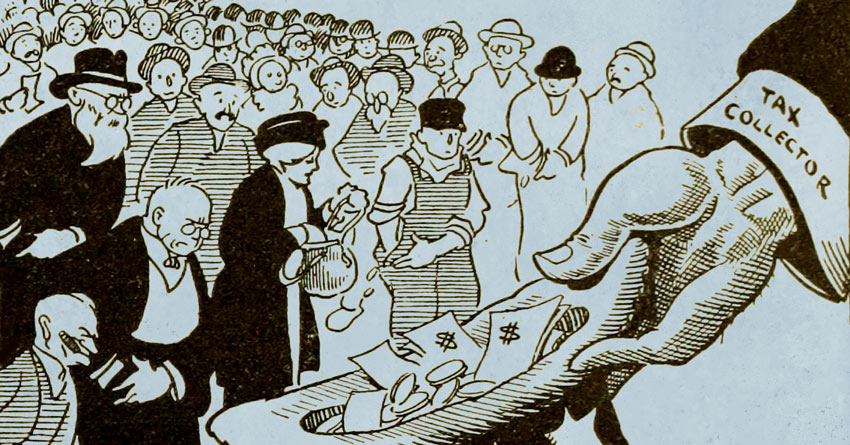The people of Roseburg, Oregon, aren’t paying enough in taxes. That’s the upshot of Kirk Johnson’s recent New York Times article, “Where Anti-Tax Fervor Means ‘All Services Will Cease.’”
“For generations in America,” readers are informed, “small cities … declared their optimism and civic purpose with grand libraries that rose above the clutter of daily life and commerce.”
And then, the unthinkable: “last fall, Douglas County residents voted down a ballot measure that would have added about $6 a month to the tax bill on a median-priced home and saved the libraries from a funding crisis.”
How dare voters so vote? Didn’t they know the Times wanted those libraries fully funded? Where was the “optimism and civic purpose” of Roseburgians?
“We pay enough taxes,” said auto mechanic Zach Holly.
“The trust is gone from people who are paying the bills,” acknowledged an elected commissioner one county over.
Even Jerry Wyatt, who voted for the library tax, decried that, “There’s no end of waste” in government, adding, “We need less people on the county payroll.”
Meanwhile, the Times reporter explained that “few places” are confronting “the tangled implications … more vividly than in southwest Oregon.” It’s not merely “lights out, one by one, for the [library] system’s 11 branches.” There have also been “cuts to the sheriff’s budget … [ending] round-the-clock staffing.”
“If a crime is reported after midnight there,” Johnson wrote, “best not hold your breath for a response.”
This is “what happens when citizens push the logic of shrinking government to its extremes.”
To the extreme, eh? Hmmm. Doesn’t seem bad at all.
Douglas County voters made a free choice about libraries and taxes.
Close the book on it.
This is Common Sense. I’m Paul Jacob.
* There have also been worthwhile innovations in county government due to the budget cuts. Nearby Curry County combined its juvenile justice department with its parks department to save scarce funds. Then, the parks department began using juvenile offenders to clean up the parks. By engaging teenagers in meaningful work, the policy pushed recidivism rates way down and now Curry County has one of the lowest rates of youths committing a second offense.










